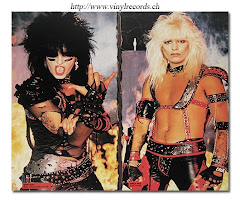Monday, September 21, 2009
Assignment #3
Julie Bettie’s article, “How Working-Class Chicas Get Working-Class Lives”, takes an interesting viewpoint on the class, race, and gender issues that separate young people in school, especially young women. While researching this topic, Bettie became close with a group of girls that called themselves “las chicas”. These Mexican-American girls were tracked on the vocational class schedule instead of the college-preparatory one, which most white girls were signed up for. This became the basic boundary that divided the Mexican-American and Caucasian high school girls through their class and racial differences. While the “preps”, or white girls, would opt for a more natural look, las chicas aimed to be opposite; the Mexican-American girls would wear lots of makeup, do their hair perfectly, and dress in clean clothes. They did these things in order to embrace adulthood more quickly, and to try to erase class boundaries. They also were thought of to be more sexually active because the Mexican-American girls were less likely to have abortions. While the white girls put their makeup on, expressed their femininity, and were sexually active, all in secret, las chicas openly exuded these aspects. Each class, both middle (primarily white) and working (primarily ethnic), work to differentiate themselves from another, while trying to eliminate such exclusive class boundaries.
Another interesting article was Audre Lorde’s “Age, Race, Class and Sex”, which touched on the idea that there is a white, male standard that society looks up to, but which is impossible for every human to obtain, and in consideration of this, we must all be accepting of each other’s differences in order to live together. She explains how most people make homosexuals, ethnic people, elders, women, etc. the “others” in society. She especially identifies with women and how women of every race, sexual-orientation and age must join together in the war on equality with men, in order to survive. Her strong assertions and poetic writing captures the attention of the reader to listen to her voice and her message; though she is a feminist, her words are wise and have great ideas to consider.
Answering Professor Messner’s question on whether "situated knowledge" is an impediment to seeing the world clearly or not, I believe it truly is. While we are shaped by our personal relationships and experiences, we are also greatly influenced by external establishments, like family, peers, mentors, school, religion, etc. A lot of our opinions of others are based upon the environments we grow up in and the lives we live.
Another interesting article was Audre Lorde’s “Age, Race, Class and Sex”, which touched on the idea that there is a white, male standard that society looks up to, but which is impossible for every human to obtain, and in consideration of this, we must all be accepting of each other’s differences in order to live together. She explains how most people make homosexuals, ethnic people, elders, women, etc. the “others” in society. She especially identifies with women and how women of every race, sexual-orientation and age must join together in the war on equality with men, in order to survive. Her strong assertions and poetic writing captures the attention of the reader to listen to her voice and her message; though she is a feminist, her words are wise and have great ideas to consider.
Answering Professor Messner’s question on whether "situated knowledge" is an impediment to seeing the world clearly or not, I believe it truly is. While we are shaped by our personal relationships and experiences, we are also greatly influenced by external establishments, like family, peers, mentors, school, religion, etc. A lot of our opinions of others are based upon the environments we grow up in and the lives we live.
Subscribe to:
Post Comments (Atom)


No comments:
Post a Comment
Note: Only a member of this blog may post a comment.